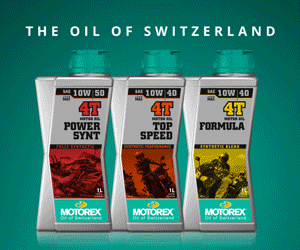2022 MV Agusta Brutale 1000 RS
You can now register your interest for the 2022 MV Agusta Brutale 1000 RS on the MV Agusta Australia website (link), as we edge closer to an unspecified release date, with pricing also yet to be announced.
MV Agusta are describing this bike as all the best bits of the Brutale 1000 RR but in a more accessible package, doing away with the Öhlins electronic suspension seen on that RR, with a less extreme ergo to match.
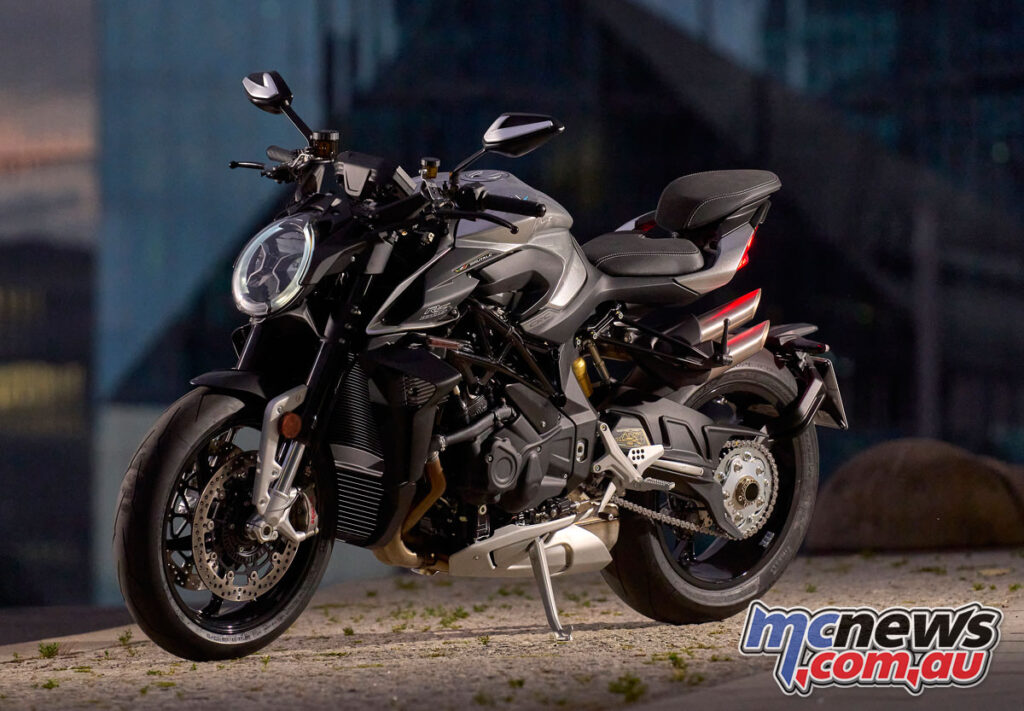
The Brutale 1000 RS shares the same platform and most of the features of the RR version, including an Öhlins steering damper, but adopting a Marzocchi fully adjustable USD fork setup, as well as a Sachs shock, also fully adjustable.
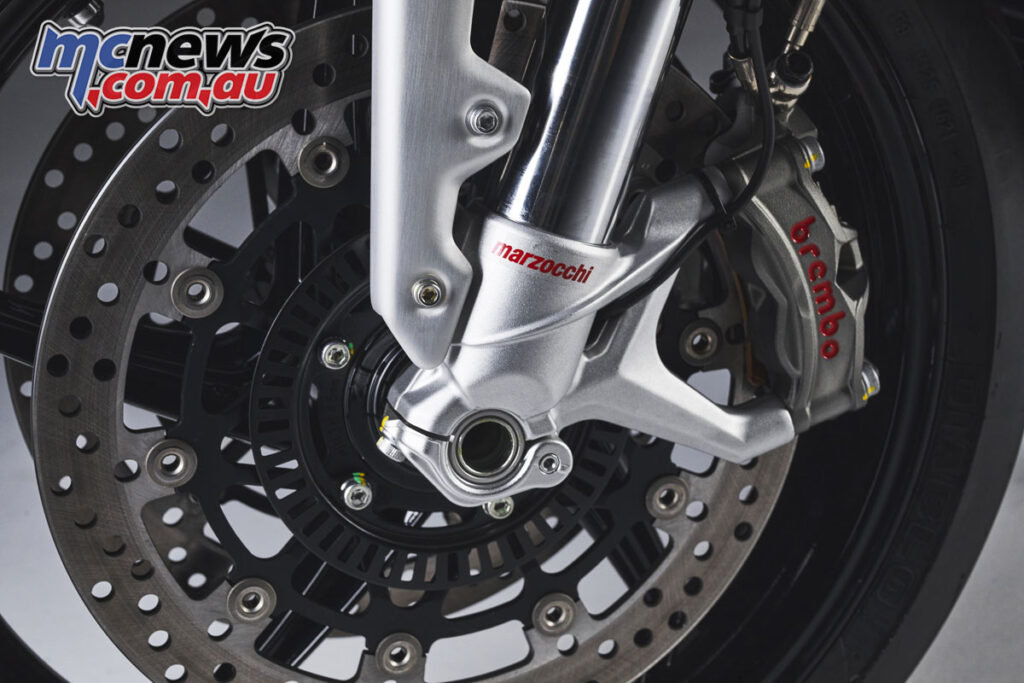
Features unique to the RS include a new seat, with more padding for greater comfort, while revised raised clip-ons and new forged footpegs will offer a unique seating position, more suited to long distance riding.
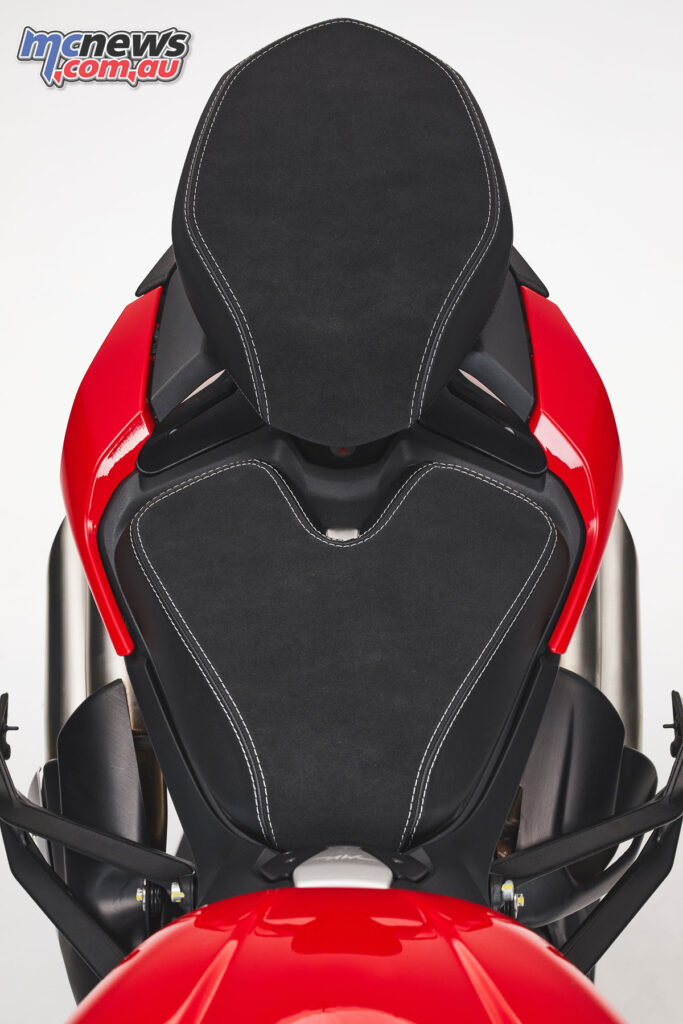
Retained from the RR is the four-cylinder powerplant with radial valves, producing 208 horsepower and 116.6 Nm of torque, with a 998 cc capacity and 13.4:1 compression ratio, with a claimed top speed of 300 km/h or 186.4 mph.
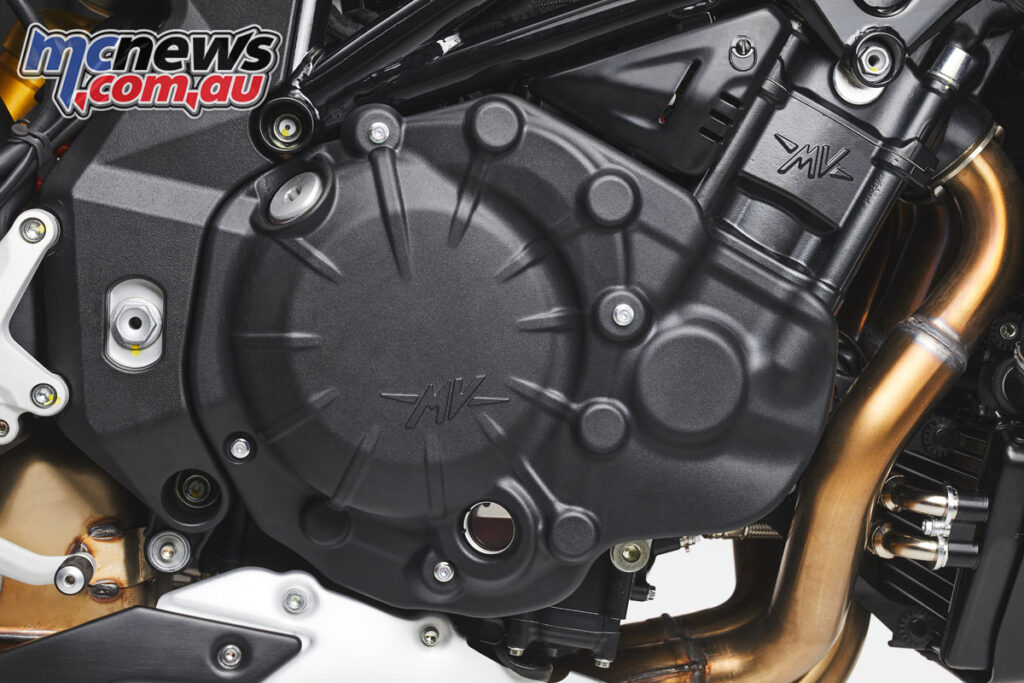
Connecting rods are titanium, as are the intake and exhaust valves, with a central timing chain. The camshaft timing has been optimised as well, with a greater focus on low- to mid-range torque. Looking at the provided dyno graph, torque ramps up between 4000 and 6500 rpm, before a couple of mid-range dips at 7000 and 9000 rpm. Peak is at 11,000 rpm before dropping back off to a 14,000 rpm red-line.
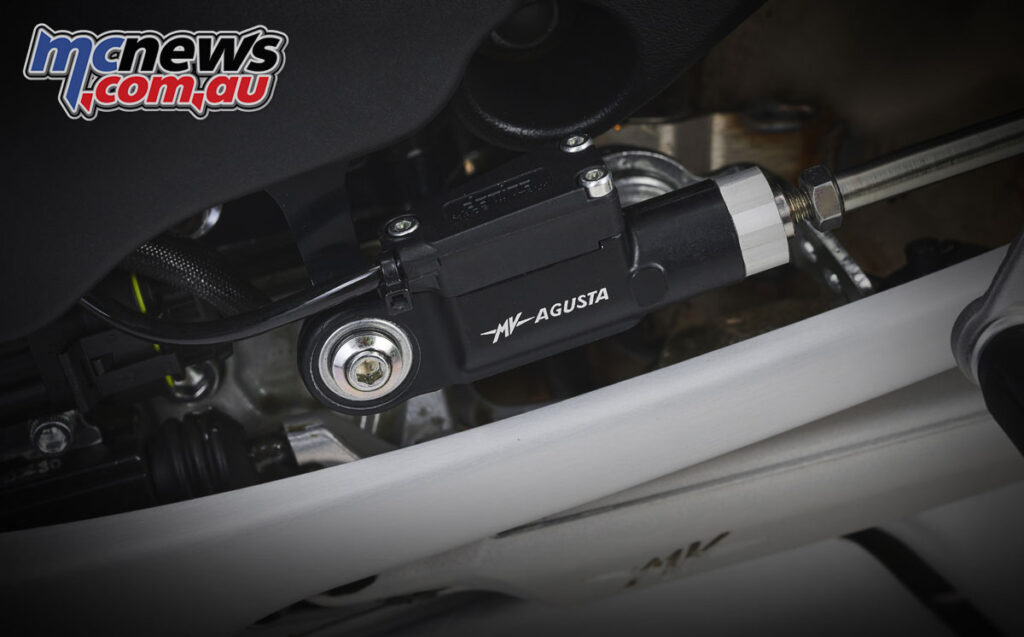
The transmission also gets a mention for being reliable and resistant, in combination with the Launch Control system, allowing for extreme starts, while the Electronic Assisted Shift 3.0 system is fitted – running an additional sensor – which MV promise will ensure more precise and smoother shifting.
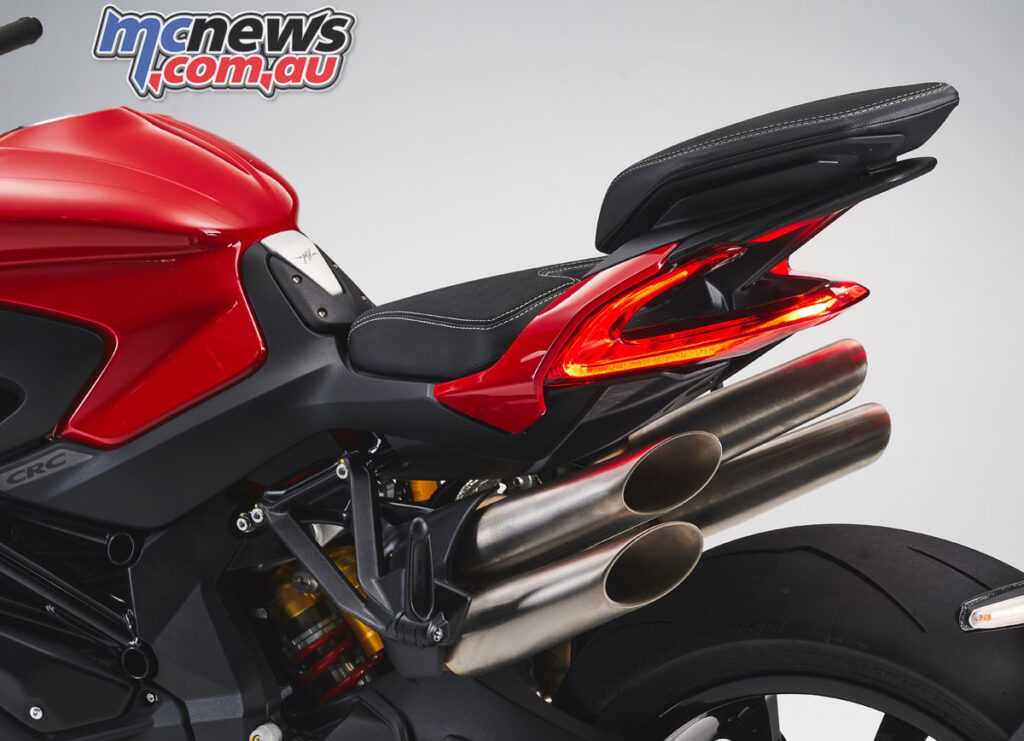
An eye catching feature which is sure to garner fans is the use of a four-outlet exhaust system nestled under the tail, with two stainless steel mufflers on either side of the bike – as seen on the RR. There’s a fairly sizeable collector still run under the belly, with the bike Euro5 compliant. We’re promised the recognizable Brutale tone naturally, which is an area the brand have always excelled in.
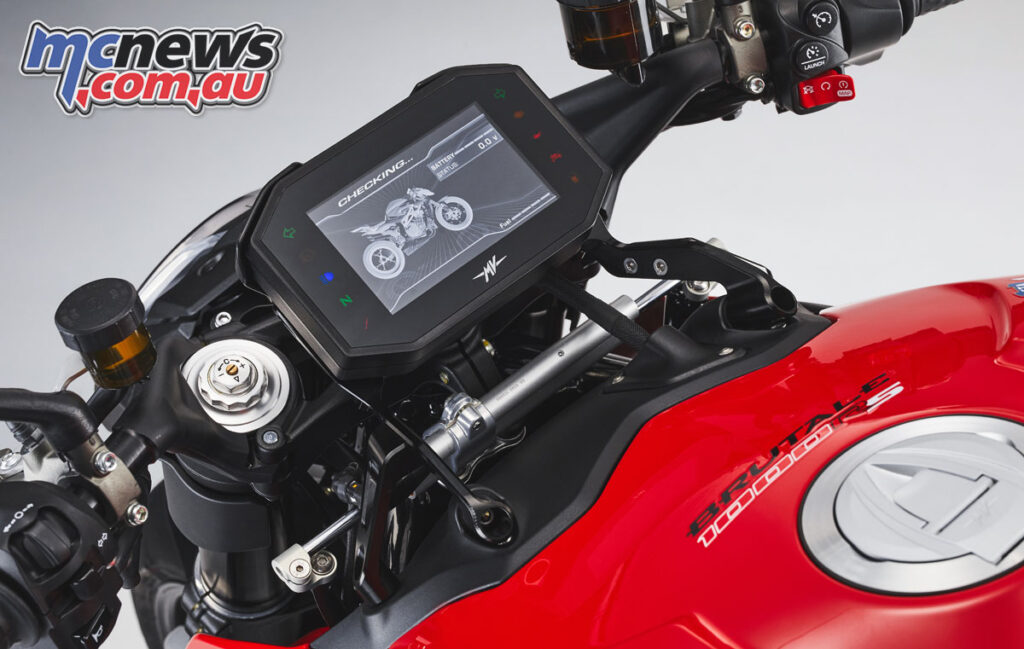
A new IMU is mated to the ECU, with a 5.5 TFT display offering access to the various settings, which MV promise are still performance-orientated, as we’d expect looking at those performance figures.
Those includes Front Lift Control (FLC), cornering ABS thanks to a MK100 Continental system, cornering traction control, cruise control, and MV My Ride app integration for mobile phone control of various features. Also standard are the Mobisat tracker, GPS and Bluetooth, with navigation integrated into the dash.
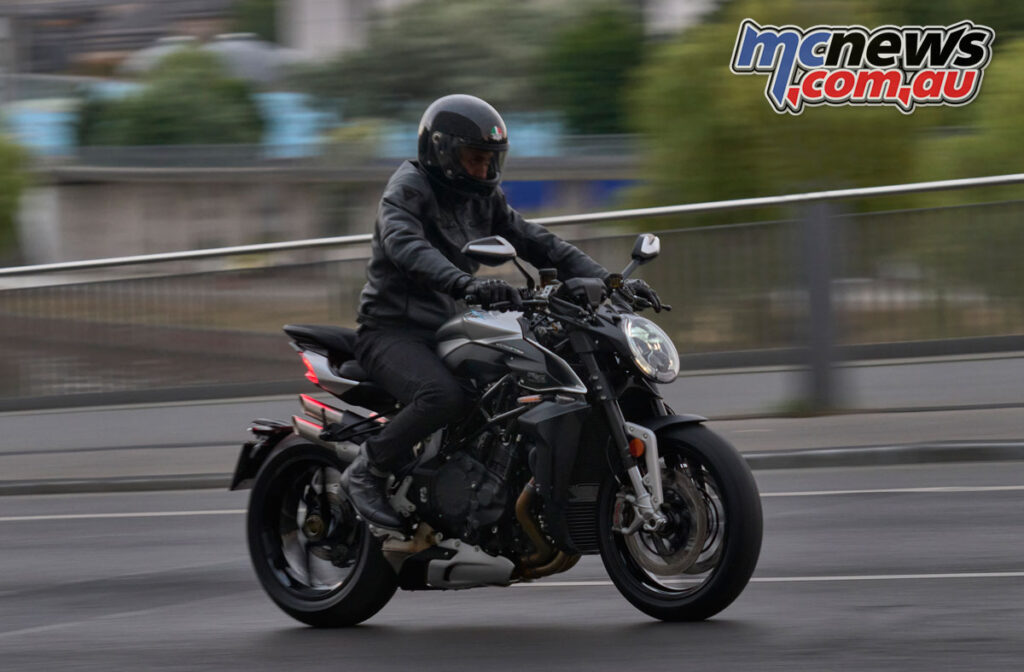
Also new are the rear-view mirrors, offering an eye catching look with better rear visibility, while the Brutale 1000 RS will come standard with a three-year warranty and weighs in at 186 kg dry.
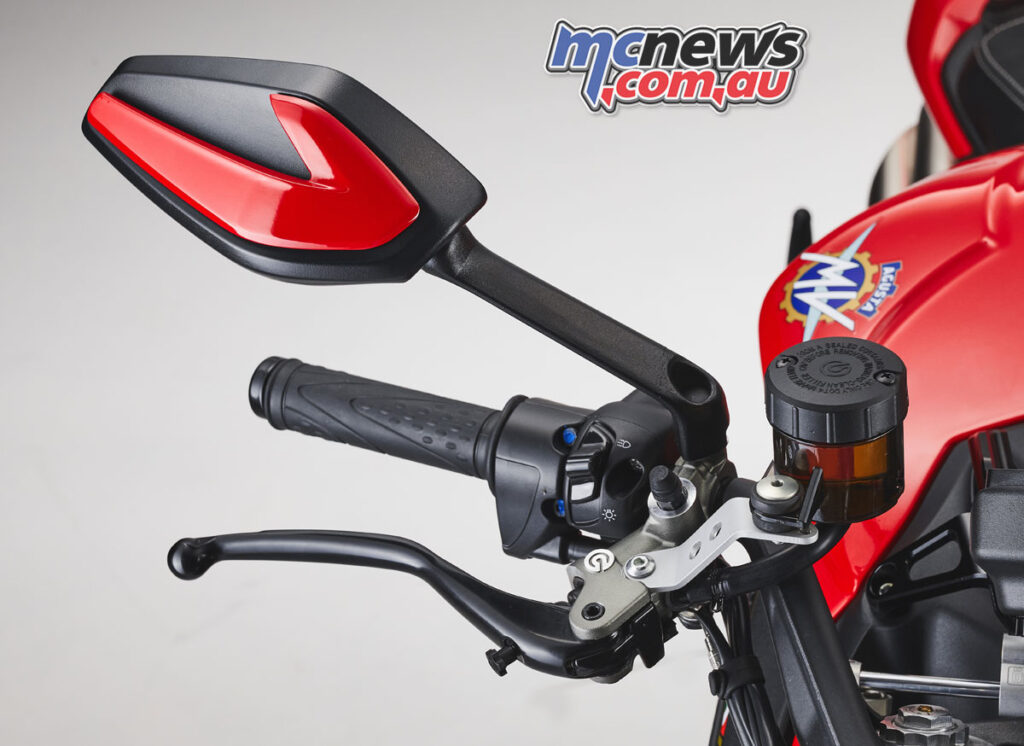
Carried across from the Brutale 1000 RR are the CrMo steel tulbar frame and aluminum allow swingarm with adjustable pivot height, as well as the Brembo brake setup. That’s a set of Stylema calipers on 320 mm floating front rotors, and a Brembo two-piston rear unit, with 220 mm rotor. Brembo provide both master-cylinders, with a radial front and PS13 rear unit.
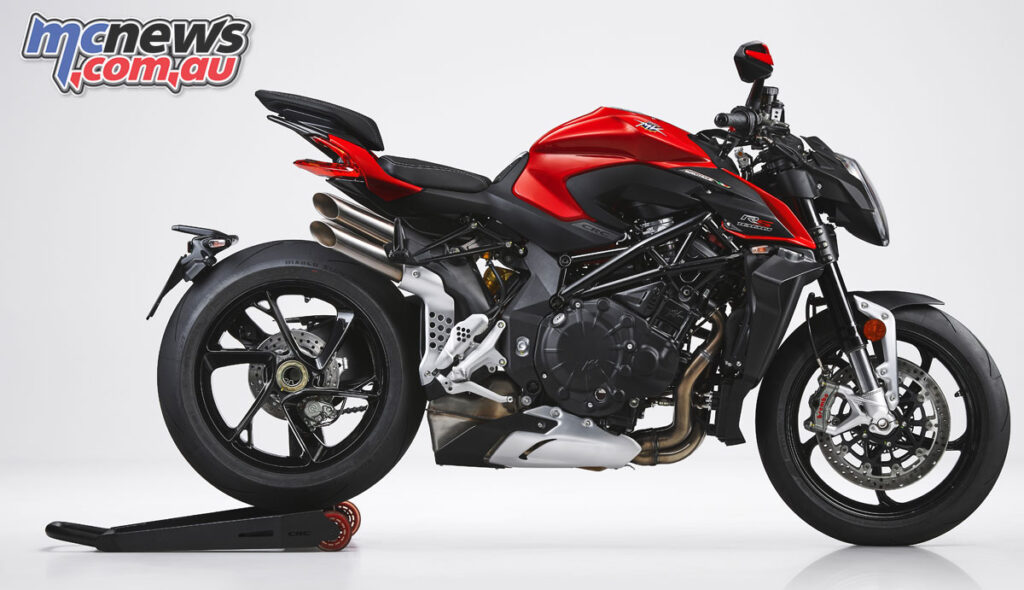
The clutch system is also hydraulic and runs a Brembo radial master-cylinder, with a back torque limiting clutch fitted.
Wheels are aluminium alloy, with a 3.50 x 17 inch front and 6.00 x 17 inch rear, and MV Agusta have mentioned that rear wheel is a new design, but no further details have been shared.
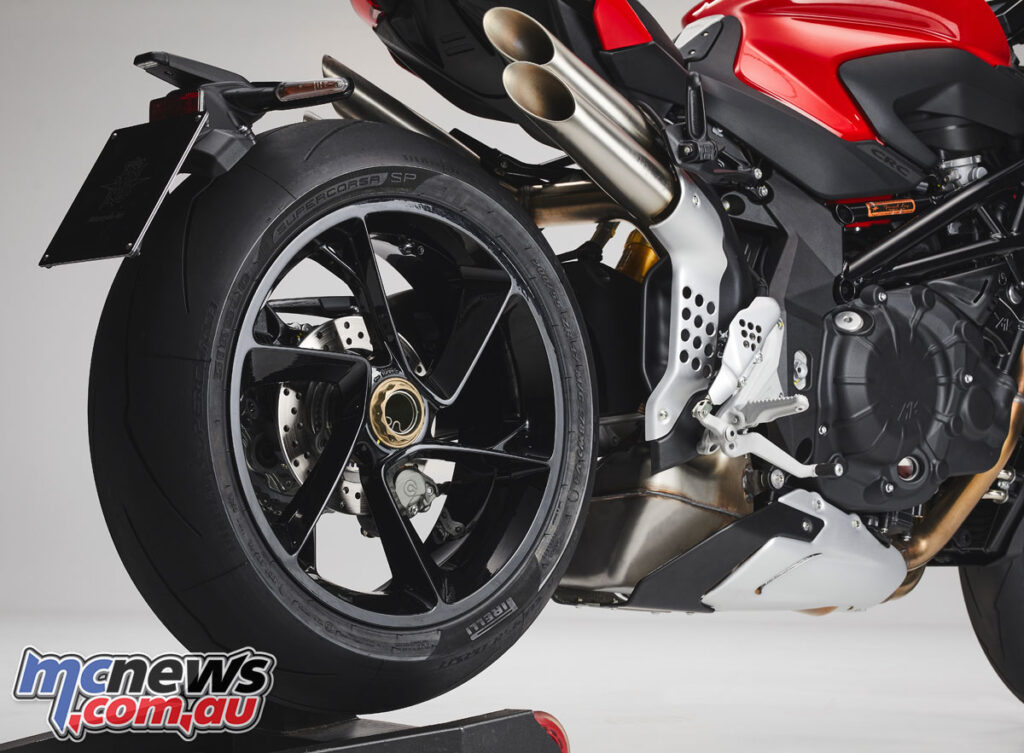
Seat height will be 845 mm, mirroring that on the RR despite the comfier seat, while a special parts range will be available via MV Agusta. It’s also noted the Brutale 1000 RS is capable of running up to E10 fuel.
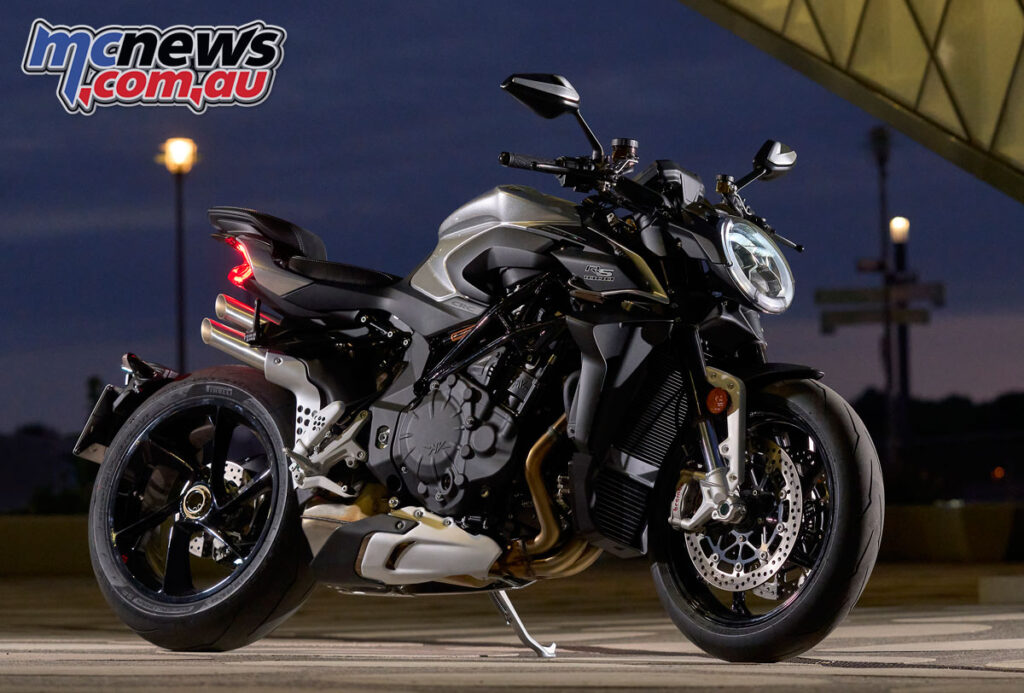
Now we’re just waiting for Australian availability and pricing information, which will tell us just how much more ‘accessible’ the 2022 Brutale 1000 RS is. In comparison the Brutale 1000 RR is currently listed as $59,990 ride-away on the MV Agusta website, so we can expect the RS at a slightly less eye watering price-point.
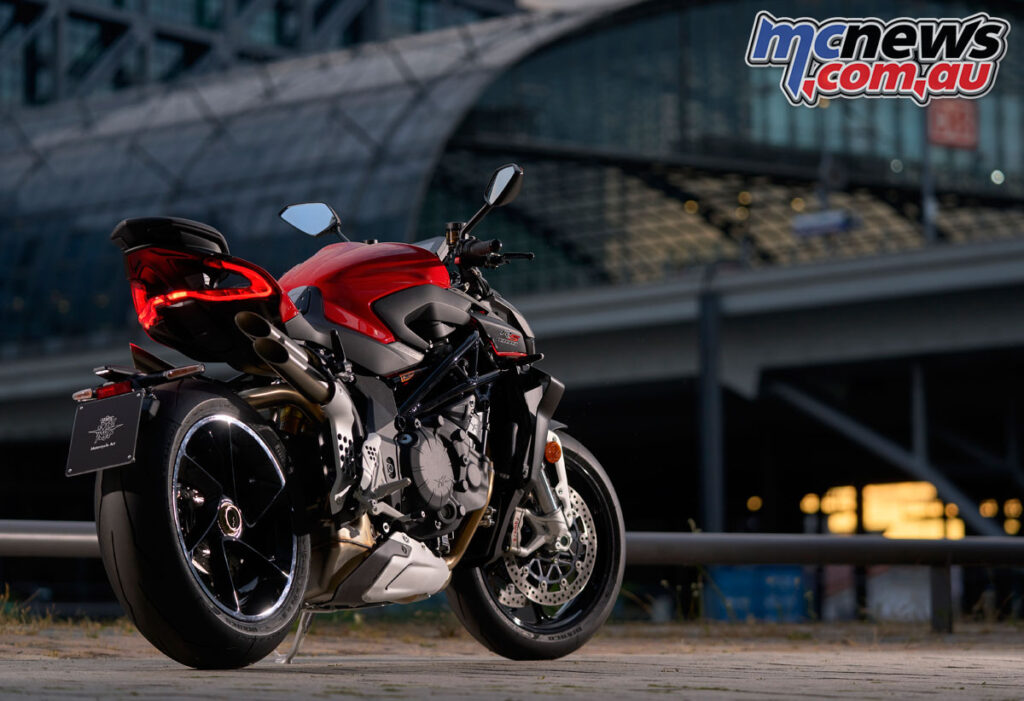
2022 MV Agusta Brutale 1000 RS Specifications
| 2022 MV Agusta Brutale 1000 RS Specifications | |
| Engine | Four cylinder, 4 stroke, 16 valve, “D.O.H.C”, radial valve and DLC tappet |
| Total displacement | 998 cm3 (60.9 cu. in.) |
| Compression ratio | 13.4:1 |
| Starting | Electric |
| Bore x stroke | 79 mm x 50.9 mm (3.1 in. x 2.0 in.) |
| Max. power | 153,0 kW (208 hp) at 13.000 r.p.m. |
| Max. torque | 116,5 Nm (11,9 kgm) at 11.000 r.p.m. |
| Cooling system | Cooling with separated liquid and oil radiators |
| EMS | Integrated ignition – injection system MVICS 2.1 |
| Electronic quick-shift | MV EAS 3.0 (Electronically Assisted Shift Up & Down) |
| Clutch | Wet, multi-disc with back torque limiting device and Brembo radial pump/lever assembly |
| Transmission | Cassette style; six speed, constant mesh |
| Primary drive | 48/82 |
| Frame | CrMo Steel tubular trellis |
| Swingarm | Aluminium alloy – Adjustable swingarm pivot height |
| Front Suspension | Marzocchi USD telescopic hydraulic fork with adjustable rebound-compression damping and external spring preload. |
| Rear Suspension | Progressive Sachs, single shock absorber with rebound and compression (High speed/Low speed) damping and spring preload adjustment |
| Steering damper | Öhlins EC with electronic manual and automatic |
| Front Brakes | Brembo Stylema calipers, dual 320 mm floating rotors, Continental MK1000 ABS |
| Rear Brakes | Brembo two-piston caliper, 220 mm rotor, Continental MK1000 ABS |
| Wheel Front | Aluminium alloy 3,50 x 17in |
| Wheel Rear | Aluminium alloy 6,00 x 17in |
| Tyre, Front | 120/70 – ZR 17 M/C (58 W) |
| Tyre, Rear | 200/55 – ZR 17 M/C (78 W) |
| Wheelbase | 1.415 mm (55.71 in.) |
| Overall length | 2.080 mm (81.89 in.) |
| Overall width | 805 mm (31.69 in.) |
| Saddle height | 845 mm (33.27 in.) |
| Ground clearance | 141 mm (5.55 in.) |
| Trail | 97 mm (3.82 in.) |
| Dry weight | 186 kg (410.06 lbs.) |
| Fuel tank capacity | 16 l (4.23 U.S. gal.) |
| Maximum speed* | over 300 km/h (186 mph) |
| Env. Standard | Euro 5 |
| Combined fuel consumption | 6.8 l/100 km |
| CO2 Emissions | 158 g/km |

































































